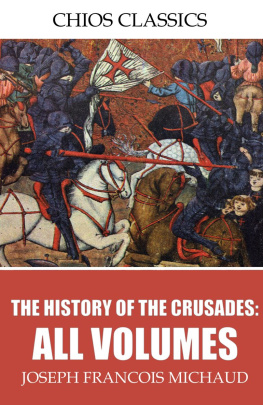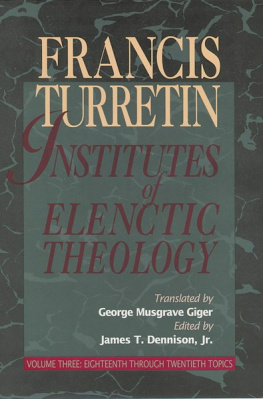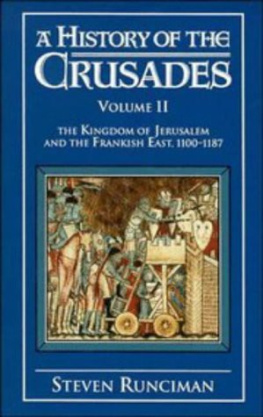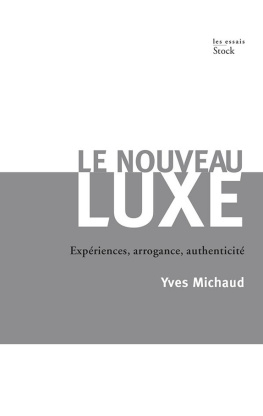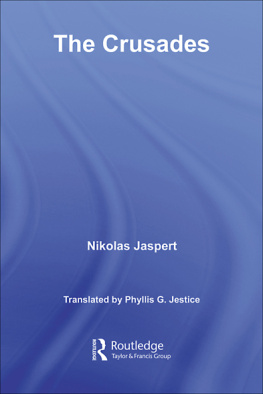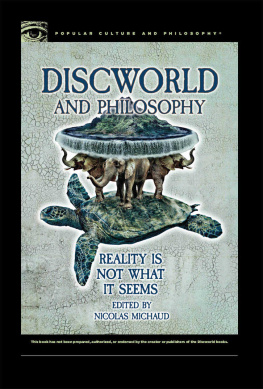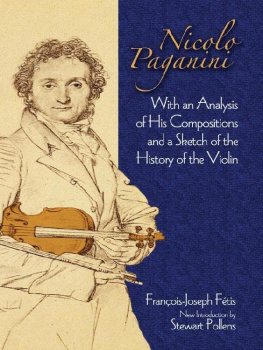Joseph Francois Michaud - The History of the Crusades: All Volumes
Here you can read online Joseph Francois Michaud - The History of the Crusades: All Volumes full text of the book (entire story) in english for free. Download pdf and epub, get meaning, cover and reviews about this ebook. publisher: MIT, genre: Detective and thriller. Description of the work, (preface) as well as reviews are available. Best literature library LitArk.com created for fans of good reading and offers a wide selection of genres:
Romance novel
Science fiction
Adventure
Detective
Science
History
Home and family
Prose
Art
Politics
Computer
Non-fiction
Religion
Business
Children
Humor
Choose a favorite category and find really read worthwhile books. Enjoy immersion in the world of imagination, feel the emotions of the characters or learn something new for yourself, make an fascinating discovery.
- Book:The History of the Crusades: All Volumes
- Author:
- Publisher:MIT
- Genre:
- Rating:5 / 5
- Favourites:Add to favourites
- Your mark:
- 100
- 1
- 2
- 3
- 4
- 5
The History of the Crusades: All Volumes: summary, description and annotation
We offer to read an annotation, description, summary or preface (depends on what the author of the book "The History of the Crusades: All Volumes" wrote himself). If you haven't found the necessary information about the book — write in the comments, we will try to find it.
The History of the Crusades: All Volumes — read online for free the complete book (whole text) full work
Below is the text of the book, divided by pages. System saving the place of the last page read, allows you to conveniently read the book "The History of the Crusades: All Volumes" online for free, without having to search again every time where you left off. Put a bookmark, and you can go to the page where you finished reading at any time.
Font size:
Interval:
Bookmark:

THE PUBLICATION OF A new edition of this standard work finds its justification in the wide-spread interest in historical study and in the importance of the events which it describes with such fullness and accuracy. The popular demand for histories of the best class is unprecedented in the annals of book-making, and is substantial evidence of a growing taste for the most important literature. The standard historians have one after another been published in attractive editions, and are rapidly filling the libraries of English-speaking people everywhere. In this remarkable development of popular interest in historical literature, so striking an episode as that of the Crusades could not be left without its record, and the story is nowhere told so entertainingly and comprehensively as in the pages of Michaud. It is a story worthy of careful study, not only on account of its intrinsic interest, but because of its significance in that larger history of Europe of which it forms, in many respects, the most dramatic and picturesque chapter.
There has been of late an immense advance in the methods of historical investigation, and the contemporaneous historian studies the events which he undertakes to portray from a new standpoint. It would be difficult to find in any other department of literary work a wider difference of method and aim than that which separates Robertsons Charles V. from Freemans Norman Conquest of England. The clue is no longer sought in the hands of trained diplomatists, but in the broad, though less obvious, unfolding of the popular life. To the most advanced school of historians Robin Hood is almost as important as Richard I. The historical writer of the last age worked with a pictorial imagination, weaving his story about the striking characters and episodes of an age; the same writer to-day, with an imagination trained in philosophical methods, discerns the dimly outlined movement of national life behind the pageantry of courts, the struggles of parties, and the rush of events. It is doubtless this very deepening of historical study and broadening of historical effect which has made the history the rival of the romance in popular interest. The studied narrative of Hume repels in spite of its trustworthiness, while Greens portrayal of the national development against a background of equally trustworthy fact charms a host of readers into repeated perusals.
The epoch of the Crusades is important from the standpoint of either school. Prescott and Professor Seeley would each find in it material to his fancy. Studied with an eye to pictorial effect, what series of events could be more impressive than that which chronicles the successive campaigns to capture and hold Jerusalem? If chivalry was ever anything more than an aftergrowth of fancy and sentiment, it was in the fierce struggles which centered around the Holy City. The virtues of Feudalism were never more strikingly illustrated than during the brief period in which a handful of knights held Jerusalem against a circle of hostile nations. Separated by long and perilous marches from Europe, hemmed in by enemies whose multitude made their own scanty ranks insignificant, sustained by a courage that nothing could daunt, a purpose that nothing could defeat, a skill in arms which made their skeleton armies a host, they long maintained the hopeless struggle of a Christian colony against Asia in arms to destroy it.
Tancred, Godfred de Bouillon, Richard and Saladin, are names which have made knighthood synonymous with honor, loyalty, and courage. Their personal exploits, no less than the larger achievements in which they bore their part, make the age of the Crusades a field from which literature has been enriched with heroic characters and dramatic incidents from the days of Raoul de Caen and Tasso to the present. These expeditions furnish the most striking episode in European history, inspired as they were by religious emotion, prosecuted under the most perilous conditions, displaying in the most effective contrasts the loftiest and the basest passions of men, and foreordained from the beginning to a disastrous failure, which hangs over the narrative as invisibly, but as inevitably, as the doom which overshadows a Greek tragedy. If they had no deeper interest than that which attaches to wide and varied disclosures of character, to vast and varied achievements, these warlike pilgrimages would be worthy the most thoughtful study.
The Crusades have, however, a deeper significance than any isolated personages or events, however picturesque or imposing, ever possess. They brought two civilizations into conflict, and no events are more important than those which secure the contact of different civilizations. In contemporaneous history nothing is so suggestive of change as the wonderful return of Western upon Eastern civilization in Egypt, Syria, India, and Japan. The contact of Western with Eastern knowledge and thought in the Crusades was by no means so fruitful as that which came about through the conquests of Alexander and, later, of Rome, but it was not without great results. The Crusades established an intercourse between the East and the West, which if often hostile, has nevertheless kept an open channel for that interchange of thought and industry, which in the single department of comparative philology has made possible a marvelous advance into an unsuspected region of knowledge. The study of Sanskrit has opened an epoch in historical and literary investigation, which Professor Fiske declares will be not less fruitful in the intellectual progress of the world than was the age of the Renaissance.
The Crusades united for the first time the warring States of Europe in a common purpose and a common enterprise. It accustomed the overburdened people to the thought of a higher authority than that of the special tyranny under which they happened to be born, and so prepared the way for the growth of larger ideas of authority and citizenship. The power of Feudalism was measurably weakened by the disasters which overtook successive expeditions led by the flower of chivalry, and this result made possible the unfolding of the monarchical principle which was to play so important a part in the political development of Europe. In short, the wide disturbance which these successive expeditions to the East introduced, loosened perceptibly the iron framework of feudal tyranny which held European society bound and helpless, and by gradual disintegration prepared the soil for the seeds of popular institutions.
H. W. M.

WE ARE NOT OF those who think that readers are without curiosity as to the position in life, actions, and fortunes of the authors who afford them instruction or pleasure; the eagerness with which the birthplaces of men of genius are sought for and commemorated; the fondness with which their most trifling actions are dwelt upon; and the endless collections that are made of their conversations and sayings, prove that this cannot be the case.
In a prefatory memoir, we can scarcely go into so many details of the life of Michaud, as, perhaps, the subject deserves. Michaud was not a mere author, whose history may be read in his works. He lived at a momentous period, and was no idle spectator of passing events; a complete life of Michaud would, indeed, swell to a history of France from 1790 to 1839.
Joseph Franois Michaud, born at Albens, in Savoy, on the 19th of June, in the year 1767, was descended from a family that traced its nobility beyond the tenth century. One of his ancestors, Hugh Michaud de Corcelles, was deservedly distinguished by the emperor Charles V. The father of Joseph was obliged to leave his country, in consequence of what is termed by his biographer, a piece of boyish rashness, but which we prefer relating to any of the warlike deeds of the abovenamed Hugh. Whilst on a shooting party, he sought refreshment in a cottage, and found the mistress of it in the greatest distress; for, at the moment of his entrance, officers were bearing away her humble furniture, for the paltry sum of sixty francs. He offered to pay the amount if they would come with him to his home; but they refused, and continued their operations in his presence. This irritated him to such a degree, that he threatened to make use of his gun; and, at length, struck one of them so severe a blow with the stock of it, that the fellow died immediately. He retired to a place near Bourg, in Bresse, where he married; and he afterwards established himself as a notary and commissary at Terrier, in that province. An early death left his widow burdened with a numerous family, of which Joseph was the eldest. Notwithstanding this calamity, he received an excellent education at the college of Bourg, and acquired great credit as a rhetorician and a composer of French verses. His studies and some juvenile travels completed, it became necessary for him to fix upon a mode of getting a living; and the narrowness of his mothers resources confining his efforts to trade, he went into the house of a bookseller at Lyon, attracted, no doubt, by the affinity between the bookseller and the man of letters. He remained here till 1790, when the passage of the rich, influential, and intellectual Countess Fanny de Beauharnais through that city, aroused all the provincial muses to make their offerings to the great lady. Among the poets, Michaud was so successful, that he thought himself warranted in following her to Paris, with the view of pursuing a literary career under her auspices. Immediately on his arrival, he laid the contents of his poetical portfolio before the public, and soon became the associate of Cerisier, in the
Font size:
Interval:
Bookmark:
Similar books «The History of the Crusades: All Volumes»
Look at similar books to The History of the Crusades: All Volumes. We have selected literature similar in name and meaning in the hope of providing readers with more options to find new, interesting, not yet read works.
Discussion, reviews of the book The History of the Crusades: All Volumes and just readers' own opinions. Leave your comments, write what you think about the work, its meaning or the main characters. Specify what exactly you liked and what you didn't like, and why you think so.

